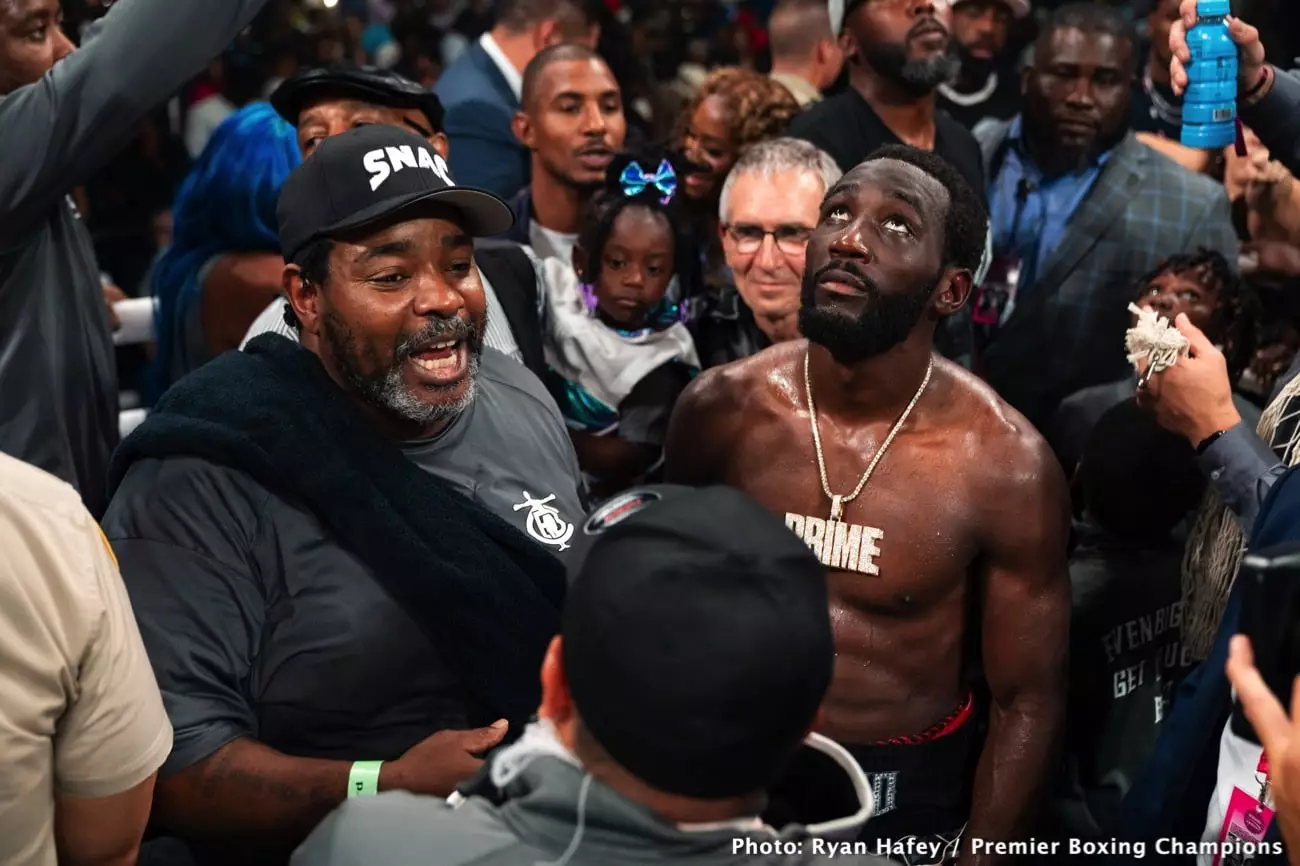In a captivating episode of ‘Froch on Fighting,’ Carl Froch hosted the much-acclaimed Terence Crawford, during a recent session in Dubai that brimmed with camaraderie and respect. The unique setting allowed both personalities to engage in thoughtful dialogue about their sport — boxing. Froch’s experience as a former super-middleweight champion complements Crawford’s rich legacy as a multi-division titleholder, presenting viewers with a compelling fusion of perspectives.
One of the central themes of the conversation revolved around Crawford’s admiration for Canelo Alvarez, a fighter known for his significant physical advantages within the ring. The former champion was unequivocal in his statement of wanting to take on Alvarez, displaying a confidence that encapsulates the essence of competitive spirit. Crawford expressed, “Of course,” when posed the question of his seriousness about the fight, illustrating his readiness to embrace challenges that could define his legacy in the sport.
Crawford’s audacity is palpable in his remarks, as he asserts that his commitment to winning is unwavering. Referring to Alvarez as a “big, strong competitor,” he maintains respect for Canelo’s talents while also affirming his determination to emerge victorious in any matchup. This balance between admiration and ambition is crucial for a fighter stepping into the ring against an elite adversary.
A critical moment in the conversation came when Froch pressed Crawford on his potential strategy against Alvarez — whether he would choose to box and move or confront him directly. Rather than provide a definitive answer, Crawford highlighted his adaptability as a fighter. He stated, “I’m the type of fighter that I make adjustments on the fly,” which suggests his approach is not about adhering to a single plan but rather being responsive to the dynamics of the fight itself.
This versatility has become a vital aspect of Crawford’s fighting style. It indicates a fighter who is not only skilled in technique and strategy but also possesses the mental fortitude to recalibrate his approach as circumstances change. Alvarez’s boxing style demands respect, and Crawford’s acknowledgment of this potential complexity reflects his understanding of the boxing landscape.
The prospect of a Crawford vs. Alvarez clash sparks excitement not only for boxing fans but also for those who appreciate the narratives of sportsmanship and legacy. How would Crawford perform at super middleweight? Would he rise to the occasion against a fighter regarded as one of the best of his era? Engaging in such a match has become synonymous with the phrase, “he dared to be great.” Even if the fight were to yield an unfavorable outcome for Crawford, the very act of stepping into the ring against Alvarez would amplify the drama and gravitas associated with their respective careers.
In a deeper exploration of boxing’s ethos, Crawford shared insights into his inspirations, naming legendary figures like Roy Jones Jr. as his all-time favorite and acknowledging Muhammad Ali as the epitome of greatness. This connection to past champions not only influences his style but also serves as a reminder of the rich history that defines the sport of boxing.
As Terence Crawford embarks on this next chapter of his career, whether facing Canelo Alvarez or pursuing alternative aspirations, one thing remains clear: his journey is not just about winning; it is about creating a lasting legacy that resonates. The path of a champion is seldom straightforward, yet Crawford’s willingness to accept formidable challenges underscores his commitment to greatness, elevating him into discussions of future Hall of Famers in the ring.

